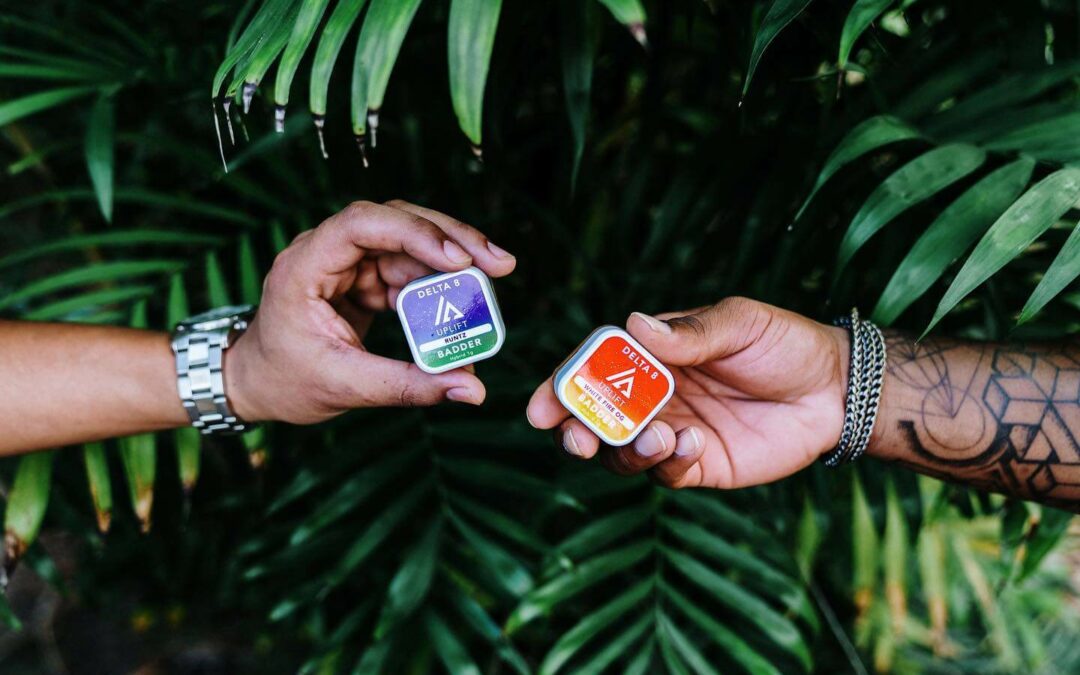Delta 8 and Delta 9 are two forms of cannabinoids found in the hemp plant, but they have distinct differences that set them apart. Delta 8, also known as D8, has been gaining popularity in recent years for its unique properties and effects, while Delta 9, commonly known as THC, is the most well-known cannabinoid. This blog will explore the difference between Delta 8 and Delta 9, their effects, legality, and more. Whether you’re new to the world of cannabinoids or a seasoned pro, this blog will provide the information you need to understand the difference between Delta 8 and Delta 9.
What Is Delta 8?
Cannabis sativa has very little Delta 8, usually made from concentrated hemp-derived cannabidiol. Despite not having intoxicating effects, CBD has similar psychoactive properties as Delta 9. However, it is usually less potent than the latter.
There are many Delta 8 products available, including chocolate, cookies, tinctures, and vape cartridges. Infused drinks can also be purchased.
Delta 8 products are sometimes sold by some manufacturers as cures or treatments for certain medical conditions. However, the Food and Drug Administration has not evaluated and approved such claims. Five manufacturers of Delta 8 products were warned by the FDA in May 2022 for violating the Federal Food, Drug, and Cosmetic Act.
These warning letters concern misbranding. They include not giving adequate instructions, illegally marketing products for medical or other therapeutic purposes, and adding Delta 8 to foods such as gummies, chocolate, and other consumables.
Potential Benefits
General statements about cannabis use are not accurate. Dave Gordon, M.D. is a double-board-certified integrative and functional medicine physician specializing in cannabis therapeutics.
Dr. Gordon explains the risks and benefits of Delta 8/Delta 9.
- All compounds/constituents being consumed
- Dosage
- Frequency of consumption
- Administration
- The quality of the production (cultivation and extraction, as well as a formulation for cannabis products)
- Health and demographic information of the consumer
The potential benefits of Delta 8 include the following:
- Pain relief
- Better sleep quality
- Relaxing an overactive nervous or immune system
- Increased appetite
- Preventing sensory overstimulation
- Inflammation is reduced
Potential Risks
Dr. Gordon says that consuming too much Delta 8 can have short-term side effects, just like any other compound. He adds that these side effects depend on the dosage and can become more severe with higher consumption.
Dr. Gordon suggests that short-term side effects from overconsuming Delta 8 could include:
- Lethargy
- Disorientation
- Anxiety and panic
- Dry eyes and mouth
- Heart rate increases
- Inadequate coordination
Also, Dr. Gordon says that adverse effects usually resolve a matter of hours after inhalation and several hours after eating.
Dr. Gordon adds that individuals with preexisting conditions might be at greater risk than others. Over-consuming Delta 8 in patients at high risk of (or already diagnosed with) psychotic disorders could lead to psychosis.
What Is Delta 9?
The main intoxicating component found naturally in cannabis plants is Delta 9. People who consume Delta 9 above a certain threshold experience a “high.”
There are many ways to get Delta 9 products from cannabis dispensaries in states that have legalized it. These include gummies, cookies and candies, vaping cartridges, topical creams, and pre-rolled “joints” (pre-rolled).
Manufacturers market Delta 9 products to claim they can treat or reduce symptoms of certain conditions and diseases. However, the FDA has approved only two synthetic THC formulations — dronabinol and nabilone used to alleviate chemotherapy-induced nausea and vomiting. Patients with AIDS can also use nabilone to increase their appetite.
Potential Benefits
There are potential benefits to consuming Delta 9.
- Relaxation
- A decrease in anxiety
- Appetite increases
- Feelings of joy or exhilaration
- Imagination is more vivid
- Sensitivity enhancement
Dr. Gordon says that Delta 9 has therapeutic benefits for conditions such as nausea and vomiting from chemotherapy, seizures, chronic pain, spasticity with multiple sclerosis (MS), and sleep disorders in patients with other chronic conditions.
Although we don’t know for sure if Delta 9 or any other cannabinoids is the cause, patients who have been enrolled in structured medical cannabis programs show benefits in all of the above conditions. He adds that benefits are also seen in patients with depression, anxiety, neurodegenerative disorders, seizures, autism, and post-traumatic stress disorder (PTSD).
There is little research on the long-term effects of Delta 9 on sleep. Some studies show improvement in sleep patterns, while others indicate that chronic Delta 8 THC use can disrupt sleep and delay sleep onset.
Potential Risks
Dependent on many factors, such as the quantity and quality of Delta 9, side effects can include:
- Paranoia
- Anxiety is heightened
- Sedation
- Confusion
- Dry mouth
- Dysphoria is feeling uneasy, unhappy, or dissatisfied.
- Hypotension is low blood pressure.
Numerous cases have been reported that long-term Delta 9 users experience recurring nausea, severe vomiting, and abdominal pain. Numerous studies also show that Delta 9 is associated with an increased risk of psychosis, anxiety and depression, schizophrenia, and other psychiatric disorders.
Is Delta 8 Able to Pass a Drug Test?
Delta 8 is not a Delta 9 product. A drug test for THC will likely show a negative result unless it specifically checks for Delta 8 metabolites. A drug test might show positive results for THC if Delta 8 products contain high levels of Delta 9. Delta 8 is becoming more popular, and some laboratories now offer confirmation testing for THC.
It is impossible to say definitively that Delta 8THC will not show a positive drug test result. This comes down to the quality of the Delta 8 product and the type of drug test administered.
Delta 8 vs. Delta 9: Similarities & Differences
Dr. Gordon says that Delta 8 THC and Delta 9 THC are made of the same elements (carbon, hydrogen, and oxygen). However, they differ in the way these elements are organized. Even though they are similar in composition, Delta 8 differs from Delta 9.
Similarities
The negative or positive effects of Delta 8, and Delta 8 HHC, can be caused by both Delta 8 and Delta 9 activating the body’s CB1-CB2 cannabinoid receptors. This includes those in the central nervous system.
Dr. Gordon says that activating CB1 receptors can help reduce pain, sleep, and anxiety, relax, calm an active nervous system, improve appetite, heal nerves, and prevent sensory overload. “Activating CB2 receptors is primarily used to calm an overactive immune system, reduce inflammation, and both are critical for improving many chronic conditions.”
Dr. Gordon adds that overstimulation of CB1 receptors can lead to disorientation, anxiety, panic, dry mouth, eyes, increased heartbeat, and decreased coordination.
Differences
Although Delta 9 has been extensively studied for almost 60 years, Dr. Gordon says that very little research has been published on Delta 8. The regulation of THC is another major difference.
He adds that Delta 9 is heavily regulated in states with legalization measures. These states have specific rules for extracting, labeling, and testing. Dr. Gordon says many Delta 8 product manufacturers must follow specific regulations. They may not make sure their products do not contain adulterants or that the product is exactly as stated on the label.
Potency is another distinction between Delta 8 THC and Delta 9 THC. Dr. Gordon says that properly labeled Delta 8 CBD would be approximately one-quarter to one-third less potent than equivalent amounts of Delta 9.
Delta 9 can also be smoked or inhaled in bud form. However, edibles, topicals, and other preparations require extraction. Nearly all Delta 8 products can be synthesized from CBD-sourced cannabis.
Is Delta 8 and Delta 9 Legal?
Delta 8 is currently legal at the federal level. However, it’s not legal for recreational use in all states. Delta 9, which is illegal at the federal level, can be used recreationally or for medical purposes in many states. Despite this, laws regarding Delta 8 and Delta 9’s production, sale, and use are constantly changing.
Ready for an Uplifting Delta 8 Experience?
If you’re looking for a new way to experience the benefits of CBD, it’s time to consider Delta 8. Uplift CBD offers a wide range of Delta 8 products, including gummies, tinctures, and vape cartridges, all made with high-quality hemp extract. Our Delta 8 products are designed to provide a more uplifting and energetic experience without the intense psychoactive effects of Delta 9 THC. Whether you’re looking for a more balanced approach to CBD or simply want to try something new, Uplift CBD’s Delta 8 products are the perfect choice.
DELTA 8 PRODUCTS WE OFFER
From our gummies, which are perfect for on-the-go use, to our tinctures, which offer a more controlled and customizable experience, we have something for everyone. So why wait? Experience the uplifting benefits of Delta 8 with Uplift CBD today!
CLICK HERE TO SHOP OUR DELTA 8 PRODUCTS


